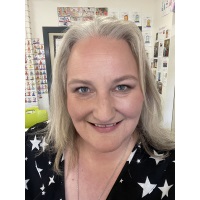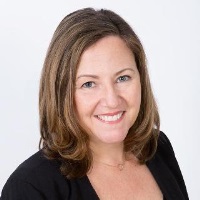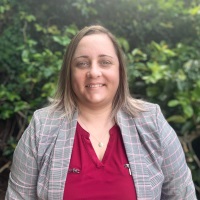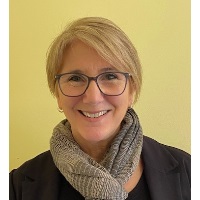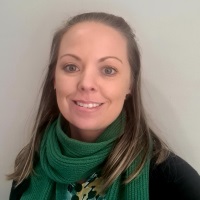Suzanne Carrington | Research Professor, Centre for Inclusive Education QUT & School Years Director, Autism CRC
QUT Kelvin Grove
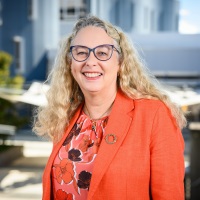
Suzanne's academic career and research reputation and outcomes demonstrate her passion and commitment to progress inclusive culture, policy, and practice in Australia and international contexts. Suzanne is internationally recognised as a leader in the field and her research has directly informed a better understanding of what it means to be inclusive and impacted policy in education in national and international contexts. In the field of inclusive education, Suzanne is ranked number two in Australia and Asia Pacific by output and number four worldwide by number of publications.
Suzanne's publications have been cited in 15 policy documents from 5 countries between 2005-2021 including OECD (2021); WHO (2012); Canada, US, and UK (Policy Guidelines.) Sixty-four per cent of her research outputs about inclusive education and disability have been published in the highest quality journals. Over the last 10 years Suzanne have engaged in extensive international development and consultancy work in the field of inclusive education building on her program of research. Suzanne's international work focuses on supporting the inclusion of students with disability. Suzanne was the academic leader on international projects and coordinated a team of academics to teach and consult on projects that involved staff from the Ministries of Education from countries such as China, Philippines, Indonesia, Maldives, Bhutan, Nepal, Fiji, Solomon Islands, Vanuatu, and Samoa. This important international work supported these countries to develop policies and practices that align with the work of the United Nations Convention on the Rights of Persons with Disabilities (CRPD), which came into force in 2008, and has since been ratified by 181 countries.
Appearances:
Day 1 @ 11:20
Diverse Education Needs & Inclusion Forum
In conjuction with Australian Special Education Principals' Association (ASEPA) and Australian Association of Special Education (AASE) and Autism CRC and Education Services Australia - this is a 2-hour breakout forum designed for classroom teachers, Heads of Inclusion, SENCo’s and Learning Support teachers looking for new ideas and inspiration to better assist and include students with diverse learning needs and behavioural challenges.
Presentations will include -
Transformative Leadership for Equity and Inclusion
- Education systems around the world are developing policy frameworks to support greater equity for all within a context of global uncertainty and challenge, increasing school autonomy, accountability, and competition.
- The UNESCO Education 2030 Framework for Action emphasises inclusion and equity as laying the foundations for quality education. It also stresses the need to address all forms of exclusion and marginalisation, disparities and inequalities in access, participation, and learning processes and outcomes.
- While much progress has been made, schools in many countries continue to perpetuate inequality despite policy attempts to shift education towards inclusion.
- This presentation will provide an overview of a transformative approach to leadership drawing on Carolyn Shield’s work (Transformative Leadership Theory).
- We will report on the results of a six week professional learning program that involved school leaders, teachers and teacher aides who worked together in a short course to develop knowledge and skills to lead transformative school development for greater equity & inclusion.
Professor Suzanne Carrington, Research Professor, Centre for Inclusive Education QUT & School Years Director, Autism CRC & Tracey Taylor, Director of Education Policy, Independent Schools Australia
Applying NCCD within a Multi-Tiered System of Supports.
The NCCD collects data about school students with disability who are receiving adjustments across Australia in a consistent, reliable and systematic way. It enables schools, education authorities and governments to better understand the needs of students with disability and how they can be best supported at school. To support schools to implement the NCCD model, it is helpful to consider the associated activities and processes using a Multi-Tiered System of Supports. MTSS is a three-tiered framework for planning and organising a system-wide continuum of resources, structures and practices
Leanne Woodley, Senior Education Consultant, AISNSW
Empowering students with an intellectual disability in highschool
- An overview of the program we offer to students with an intellectual disability in highschool
- Skill development and experiences we provide to increase independence in the area of work readiness
- How to support and guide students with an intellectual disability and their families through the transition from school to post school options
Bianca Jervis, Life Skills Coordinator, Danebank Anglican School for Girls
Baringa SPS inclusionED Community of Practice
- Briefly introduce Baringa State Primary School (SPS) and the online inclusionED platform.
- Describe how inclusionED has been incorporated in the whole-of-school approach to meet the Baringa SPS moral purpose that Each and every member of our school community, believes that each and every student can and will achieve.
- Share the learnings from the Baringa SPS whole-of-school implementation of inclusionED.
- Present a series of take home messages for schools engaged in building teachers’ capacity to develop their own inclusive practice.
Dr Keely Harper-Hill, Research Associate, Autism CRC, School of Early Childhood and Inclusive Education (SECIE), QUT
Kelly Gorham, Head of Inclusion, Baringa State Primary School
Supporting Autistic secondary students using inclusionED
- What you need to know about Autism and learning
- How an analogy about spoons can help us understand emotional regulation
- Where to find teaching practices to create inclusive learning environments that support all students.
Trudy Barlett, Secondary teacher (Marsden State High School) and Research Project Officer (Queensland University of Technology)
About The Lab: a national network of locally run, not-for-profit technology clubs for autistic young people
- The Lab is premised on connecting autistic young people with each other through mutual interests in technology. Because many autistic young people are profoundly socially isolated, the changes in their and their families' lives as a result of participation have often been dramatic
- The Lab deploys a locally based and run model. It has now grown to 35 locations around Australia since 2011, as well as an online Lab
- COVID-19 has been a strong and ongoing challenge, with Labs at local government venues introducing restrictions around vaccination levels, and other Labs halting activities. We're fortunate to have had the online Lab already in place and ready to respond, as well as a philanthropic grant to see us through.
Dr Stefan Schutt, Snr Lect. Learning Design/ICT/Digital Education and co-founder of The Lab (www.thelab.org.au), La Trobe, School of Education
Contact us
Sponsorship Enquiries
arron.penman@terrapinn.com
pascal.ibrahim@terrapinn.com
Marketing Enquiries:
rita.nehme@terrapinn.com
